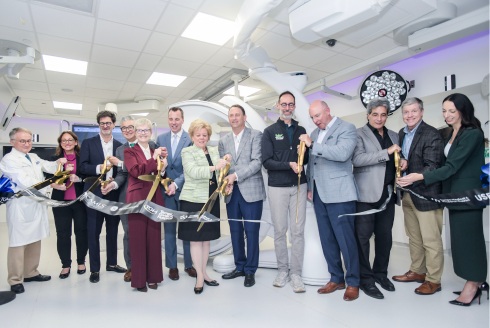
Identifying the symptoms of a brain tumor is crucial, yet challenging. Many individuals may experience headaches, confusion, or changes in their senses, which can lead them to wonder if they are signs of a brain tumor. According to Dr. Sean Grimm, a neuro-oncologist at RUSH MD Anderson Cancer Center, understanding these signs is essential for early diagnosis and treatment.
Brain tumors can manifest in various ways, depending on their location, size, and growth rate. Some tumors are benign, growing slowly and often remaining asymptomatic, particularly in their early stages. Others may be malignant and grow rapidly, leading to significant health issues.
Common Symptoms of Brain Tumors
Frequent headaches are among the most prevalent early signs of brain tumors. Unlike typical headaches, those caused by tumors tend to be more severe and resistant to over-the-counter medications. Dr. Grimm notes that these headaches may be so intense they disrupt sleep, often worsening upon waking.
Over time, the frequency of these headaches can increase. Seizures may also occur, presenting not only as convulsions but as various disturbances, such as numbness or tingling, difficulties in speaking, or even sensory changes like experiencing smells that do not exist, a condition known as phantosmia.
Other neurological symptoms that could signal the presence of a brain tumor include mood changes, confusion, and nausea.
Advanced Symptoms of Brain Tumors
As a brain tumor progresses, symptoms may escalate. Intractable headaches can become more frequent and harder to manage. They might intensify when lying down, bending over, or during physical exertion. Dr. Grimm highlights additional signs such as weakness on one side of the body, gait difficulties, confusion, and language problems.
Compromised sensory functions may also occur, impacting how one perceives the world around them.
Many patients have questions regarding common misconceptions about symptoms. For instance, eye twitching, known as myokymia, is generally not associated with brain tumors but can indicate benign conditions related to stress or fatigue. Similarly, while olfactory hallucinations, like smelling smoke, can be linked to a temporal lobe tumor, they are more frequently attributed to sinus issues or allergies.
Additionally, symptoms such as nosebleeds and eye floaters typically do not indicate brain tumors. Instead, these may stem from environmental factors or age-related changes.
What to Do If You Experience Symptoms
If you or someone you know exhibits symptoms that could suggest a brain tumor, consulting a neurologist is critical. Dr. Grimm emphasizes the importance of a comprehensive neurological examination, often followed by an MRI to assess brain structure and identify any tumors.
The diagnosis will include grading the tumor based on its aggressiveness, allowing healthcare providers to formulate an appropriate treatment plan. Treatment options vary widely, ranging from observation for small, slow-growing tumors to more aggressive approaches such as chemotherapy, radiation, and surgical intervention.
Understanding the signs and symptoms of brain tumors is vital for timely diagnosis and effective treatment. If you or someone else is experiencing concerning symptoms, seeking medical advice from a qualified specialist can make a significant difference in outcomes.






